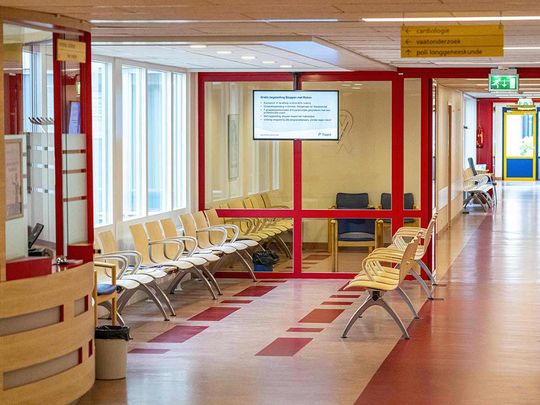World
CrowdStrike-Microsoft global digital outage: Hospitals from New York to London, Paris struggle

The cyber fiasco, the result of a flawed CrowdStrike Holdings Inc. software update that took down Microsoft Corp. systems, ripped through airports, clinics and financial networks worldwide in a stark reminder of universal dependence on properly functioning software. Hospitals from New York to London to Paris suffered under the strain.
Hospitals across the US were hobbled by issues when using Epic Systems Corp.’s widely-used electronic health record system. In an internal message to customers viewed by Bloomberg, Epic said the issue began after midnight central time and “causes servers and workstations to crash and get stuck in a reboot loop upon attempting to restart.”
An Epic spokesperson said “we can help customers monitor system activity and prioritize servers but unfortunately we are largely waiting on updates from CrowdStrike, like everyone else.”
Memorial Sloan Kettering, a leading US cancer center, said on its site that it was “pausing the start of any procedure that requires anesthesia.” A spokesperson didn’t immediately respond to a request for comment.
In Boston, the Mass General Brigham system that includes some of Boston’s most prestigious Harvard-affiliated hospitals said it was cancelling elective procedures Friday as it tried to address the computer issues.
Pittsburgh-based UPMC said it intervened early in the incident and that fewer than 10% of its Microsoft Windows-based devices were affected at some facilities. Patient care was unaffected, the hospital system said.
University Hospital Schleswig-Holstein in northern Germany cancelled elective procedures and closed outpatient clinics on Friday due to the CrowdStrike IT problems. The hospital was restarting systems by Friday afternoon and said it planned to resume normal operations by Monday.
Self check-ins for appointments at the entrance were hit at Paris Saint-Joseph hospital, where employees began personally directing patients to their appointments on arrival.
The NHS said it was also resorting to low-tech measures to keep running.
The health system “has long standing measures in place to manage the disruption, including using paper patient records and handwritten prescriptions, and the usual phone systems to contact your GP,” an NHS spokesperson said.
Farah Jameel, a doctor at the central London Museum Practice, said that while some practices seem to have been able to use a workaround to access affected systems, her practice was shut out.
“I still can’t access blood tests, I can’t access imaging, I can’t access their past records so I can’t really make a comprehensive plan at the moment,” she said in an interview. For patients with complex medical histories “it’s quite unsafe,” Jameel said. The GP fears that the backlog will accumulate, adding that the longer the system was affected “the more impact to patient care.”
Nikita Kanani, a GP in London and former medical director of primary care for NHS England, said that some doctors were having to do face-to-face triage and then fill in handwritten notes and prescriptions. Doing this all without access to blood tests or imaging results was “risky,” she said. GPs haven’t been given any timeline for when the situation would be resolved, she said in an interview.
CrowdStrike Holdings Inc. warned customers on Friday that its Falcon Sensor threat-monitoring product was causing Microsoft’s Windows operating system to crash.










